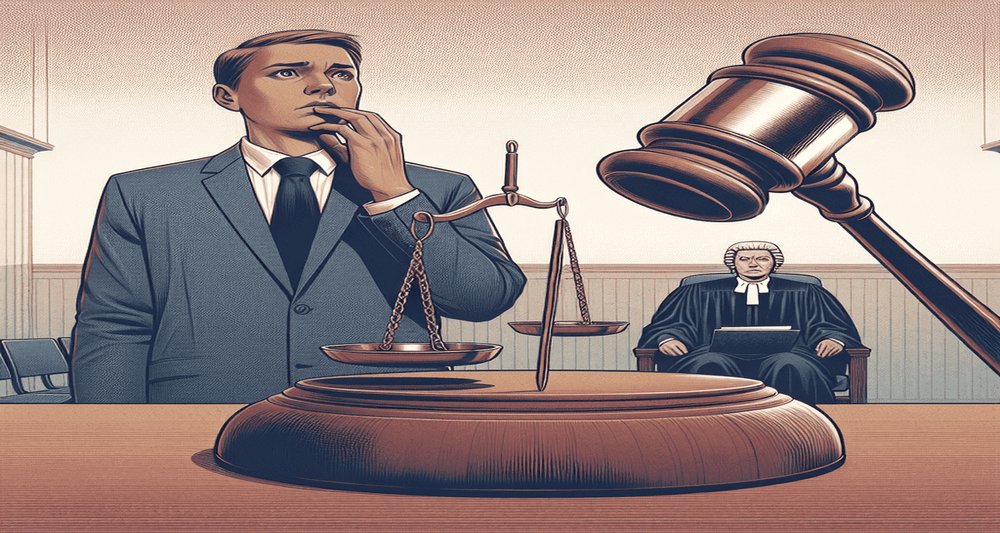The legal saga surrounding the notorious cryptocurrency exchange, FTX, has taken another dramatic turn. A federal judge has recently commanded a former executive of FTX to reconsider their guilty plea, shaking the community and heightening speculation about the future of the case. This ruling underscores the complexities and the high stakes involved. Here, we delve deeper into this critical development and what it could mean for the involved parties.
Background of the FTX Case
FTX, once a leading player in the cryptocurrency market, has faced a series of legal challenges stemming from allegations of financial misconduct. These have not only tarnished its reputation but have also led to significant repercussions for its executives.
The Former FTX Executive At the Center of the Storm
The executive in question held a pivotal role at FTX and was a crucial figure in its operations. Initially, the executive entered a guilty plea, presumably as part of a strategy to mitigate potential legal repercussions. However, the judge’s recent directive to reassess this plea has thrown a wrench into these plans.
Why the Judge Ordered a Reconsideration
The judge’s order for reconsideration is based on several legal and procedural factors:
- Evidence Reevaluation: New evidence or a reevaluation of existing evidence may have prompted the judge to question the validity of the plea.
- Legal Representation Issues: Concerns over whether the executive had competent legal advice at the time of the plea may have also played a part.
- Errors or Omissions: Any potential errors or omissions in the prosecution’s case or the defense’s understanding may also necessitate a reconsideration.
Implications for the Legal Case
The judge’s command to reconsider the guilty plea could have far-reaching implications:
- Prolonged Legal Proceedings: This move could extend the duration of the case, adding more complexity and uncertainty.
- Additional Scrutiny: It may lead to a more thorough examination of FTX’s activities and the roles of its various executives.
- Potential Plea Agreement Changes: The executive might negotiate for a potentially more favorable plea bargain or even consider contesting the charges outright.
Community and Market Reactions
Reactions to this development have been mixed within both the cryptocurrency community and the financial markets. Many stakeholders are closely monitoring the situation, as the outcome could set significant precedents.
Investor Concerns
Investors, particularly those with holdings in FTX or related ventures, are understandably anxious about the possible repercussions:
- Market Volatility: Continued legal troubles for FTX could result in increased market volatility.
- Asset Protection: Investors might seek to reassess and protect their assets in light of these developments.
Industry Impact
The wider cryptocurrency industry is also feeling the ripple effects:
- Regulatory Scrutiny: This case may invite more stringent regulatory scrutiny of cryptocurrency exchanges and related entities.
- Legislative Changes: Lawmakers might consider new regulations aimed at preventing similar issues in the future.
What’s Next?
The judge’s directive for the former FTX executive to reconsider their guilty plea marks a significant moment in this convoluted legal case. All eyes are now on the next steps that will follow this surprising turn of events.
Possible Scenarios
A few potential outcomes could arise from this reconsideration:
- Maintained Guilty Plea: The executive could stick with their original plea, potentially facing the original charges and sentencing.
- Modified Plea Deal: Negotiations may result in a modified plea deal with different charges or penalties.
- Trial: The case could proceed to trial if a satisfactory deal is not reached.
As developments continue to unfold, the legal complexities surrounding FTX and its executives are sure to captivate the attention of stakeholders and observers across the globe. For more details, you can read the original article here.
Disclaimer: The information provided in this article is for general informational purposes only and does not constitute professional advice. All content is based on information from sources believed to be accurate at the time of writing. However, the information may be outdated or subject to change. Always seek the advice of a qualified professional regarding any financial, legal, or health-related decisions. The author and publisher of this article are not responsible for any errors, omissions, or results obtained from the use of this information. Reliance on any information provided in this article is solely at your own risk.





 By
By




 By
By
 By
By
 By
By
 By
By



